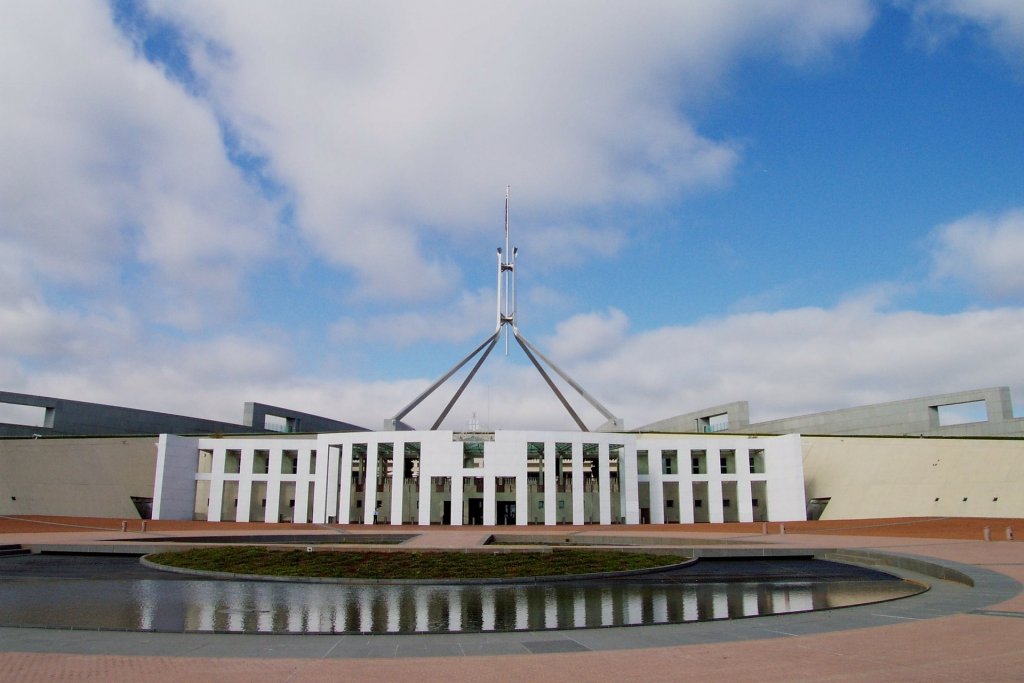
Australia will go to the polls on May 21 to elect a new federal parliamentary government, but the climate in which the country heads to the polls is troubling. The three-term conservative coalition between the Australian Liberal Party and National Party is hoping to be re-elected while COVID-19 has killed more Australians in 2022 than in 2020 and 2021 combined. The economy is also suffering. There is a slow deterioration of living standards, accelerated by the increasing cost of living and inflation. Wages have been stagnant for a decade and the recent Reserve Bank of Australia interest rate hike signals higher stress for households. And society is experiencing creeping divisions spurred by the extended lockdowns, undermining its social cohesion.
Under this climate, voters have the chance to re-elect the Liberal-National coalition, headed by Prime Minister Scott Morrison, the leader of the Liberal Party. On the other side, in Australia’s two-party system, vying for the governing seat is Anthony Albanese’s centre-left Australian Labor Party. Albanese has been unable to ignite enthusiasm from the electorate, yet Labor is, nonetheless, ahead in the pre-election polls. Overall, despondency is directed at both sides by the electorate. This has led journalist Ben Eltham to describe the situation as “the most remarkable thing about this election is the almost total absence of hope. The choice is between almost certain disillusionment under Labor and the devastation of a fourth Coalition term; that is a choice between unhappiness and double unhappiness.”
The undemocratic trend under the Coalition
The election also holds importance for the faltering standard of democracy experienced under the coalition government. Over the nine years of Liberal-National rule, troubling trends and behaviours have etched away at democratic institutions and norms. These relate to the lack of accountability in the government; the use of public money for party electoral advantage rather than the public interest; serious allegations of misconduct against government politicians; foregoing long-term interests of the country to pursue immediate political advantages; and general habit of eschewing proper ethical conduct. Governmental behaviour has ultimately been damaging to democracy.
There are material indicators democracy has taken a hit during the coalition’s time in government. Transparency International’s Corruption Perception Index (CPI) in 2021 revealed Australia is one of the most significant decliners, dropping 12 points since 2012. The CPI report placed Australia in 18th place, scoring 73 points on the 100-point scale, which is Australia’s worst score on record. The declining score signifies systemic failings in tackling public sector corruption by the coalition.
Though there are strong public calls and previous promises have been made by the Prime Minister, it has refused to establish a federal anti-corruption commission to investigate corruption. In fact, Morrison has repeatedly attacked the New South Wales (NSW) Independent Commission Against Corruption (ICAC) investigation. The government has also cut funding to the Australian National Audit Office (ANAO) in an attempt to avoid scrutiny. The Coalition has stacked the Administrative Appeals Tribunal (AAP), the independent body that reviews administrative decisions made by the Australian Government, with more than 30 former Coalition MPs, staffers and allies. The government’s partisan appointments in the public service have seen it politicised, with a long-term Liberal Party apparatchik now in charge of the public service.
Press freedoms have also taken a hit. Reporters Without Borders has relegated Australia down from 25 to number 39 out of 180 countries on the 2022 Press Freedom Index. This is due to the ultra-concentration of media ownership, combined with growing official pressure, endangering public-interest journalism.
Two mega-companies dominate the media industry, making Australia’s media landscape one of the most concentrated in the world. The high concentration offers these two companies exceptionally large political power, along with harming the diversity of voices in the media. For instance, News Corp, part of the Australian-American magnate Rupert Murdoch’s global media empire, controls more than two-thirds of the country’s leading papers, as well as most online news portals. The company uses its monopoly to attack and disparage opponents of the Liberal-National government while suppressing the Coalition’s mistakes. Such has been News Corp’s direct and unapologetic partisanship and the power it wields it is now labelled “a danger to Australia’s democracy”.
Together with this, in 2021, a Senate committee confirmed the existence of a growing culture of secrecy by the administration regarding the press, finding the existence of informal pressure on journalists not to reveal certain matters, and intimidation of whistle-blowers under the pretext of protecting national security. The Morrison Government rushed through the Surveillance Legislation Amendment (Identify and Disrupt) Bill that provides unprecedented powers for the Australian Federal Police and Australian Criminal Intelligence Commission that will lead to improper use against whistle-blowers and journalists. The Law highlights the lack of wider entrenched safeguards for press freedom and free speech in Australia. In response to the climate of intimidation, a survey by the Media, Entertainment and Arts Alliance (MEAA), found nearly 90 per cent of journalists surveyed were “fearful of threats, harassment, and intimidation” starting from the government. Coalition politicians have also employed Australia’s defamation laws with much more frequency to silence journalists and critics. We are witnessing defamation law wielded as a “political weapon” by the conservative side of politics, to protect the government.
Old and new voices in the electoral race
What has also been worrying is that the Liberal-National government has moved further to the right of the political spectrum over the nine years in government. Certain politicians from the Coalition have even started expressing right-wing populist rhetoric to stave off the rise of a smattering of small right-wing parties.
Yet, the stresses of the pandemic have pushed a segment of Coalition voters further toward small right-wing parties, such as Pauline Hanson’s One Nation and billionaire Clive Palmer’s United Australia Party. These parties are tailored with populist and anti-immigration undertones and embraced the anti-vaccination and conspiracy theory groups with support drawn generally from rural areas in Queensland and New South Wales.
Partly owing to the rightward drift, the Liberal Party is also losing support in its traditional urban strongholds, especially among women. The tacit support expressed for anti-vax protesters in 2021 from key Liberal figures including the Prime Minister, has left affluent city voters disturbed by this creeping populism. The lack of any ambition to act on climate change represents another critical reason. The government’s appalling policy record on gender equality and women’s policy has also aided the declining support among professional women.
A group of independents known as the “Teals” for the blue-green colour of their campaign have stepped in to fill this breach. These are a group of mostly wealthy white professional women, that are running in affluent electorates historically held by the Liberals. Campaigning on progressive policies, these are candidates who have been spurred to run by the Coalition’s dismal record on climate (even climate denialism), financially backed by the political action committee Climate 200. If the Teal candidates win seats held by Liberal’s, there is a strong possibility that the independents could hold make them important players in deciding the next government and influencing future policies.
If the government changes, it will be Labor that will win the seat of power. Led by Albanese, Labor has lost much of its progressive visionary policies over the recent years, pandering to the shift of the political spectrum to the right. What sets it apart from the Coalition is that it is as promised a wide-ranging new anti-corruption body, sure to uncover governmental misconduct. Though, not comprehensive enough, Labor has plan to address climate change, while there is also a promise of labour-market reform and increase of the minimum wage.
Then there is the Greens Party. They have garnered around 10 percent of the national vote for the last decade, yet their social democrat and progressive policies have not increased the party’s support beyond their urban strongholds. Realistically, they won’t win office, rather their hope is to win enough seats to hold the balance of power in Parliament.
The inclusion of the Teal independents and more Greens in the Parliament could hold the key for a more inclusive and progressive legislative climate. This will be enhanced by a Labor government that will likely be reliant on the support from the Teals and Greens, if these latter groups can successfully win a handful of seats in the Lower House and Senate. Their crossbench support for a Labor government will likely be premised on stronger climate action, wider social and economic reforms, which otherwise a Labor majority government is unlikely to pursue on its own. Whereas, if the Coalition remains in power, there is every possibility more damage to democracy will be incurred, considering the recent trend.
Hence, the resulting parliamentary make-up after the election, alarmingly, puts a lot at stake for the country, regardless of how uninspiring the electorate might feel about the major parties. The next government will either reverse politics moving further to the right or see it continue down its current undemocratic path.

Dr. Tezcan Gümüş
Tezcan Gümüş obtained his PhD from Deakin University in 2019 and has held lecturing positions at The University of Melbourne and Australian Catholic University and as a Research Fellow at Deakin University. His PhD dissertation received the 2020 Australian Political Studies Association Thesis Prize. Dr Gümüş’s book Turkey’s Political Leaders: Authoritarian Tendencies in a Democratic State will be available through Edinburgh University Press (Studies on Modern Turkey) in late 2022.
To cite this work : Tezcan Gümüş “ The Australian Federal Election result will have an impact on the health of democracy ”, Panorama, Online , 18 May 2022, https://www.uikpanorama.com/blog/2022/05/18/aus-elec/
Copyright@UIKPanorama. All on-line and print rights reserved. Opinions expressed in works published by the Panorama belongs to the authors alone unless otherwise stated, and do not imply endorsement by the IRCT, Global Academy, or the Editors/Editorial Board of Panorama.

